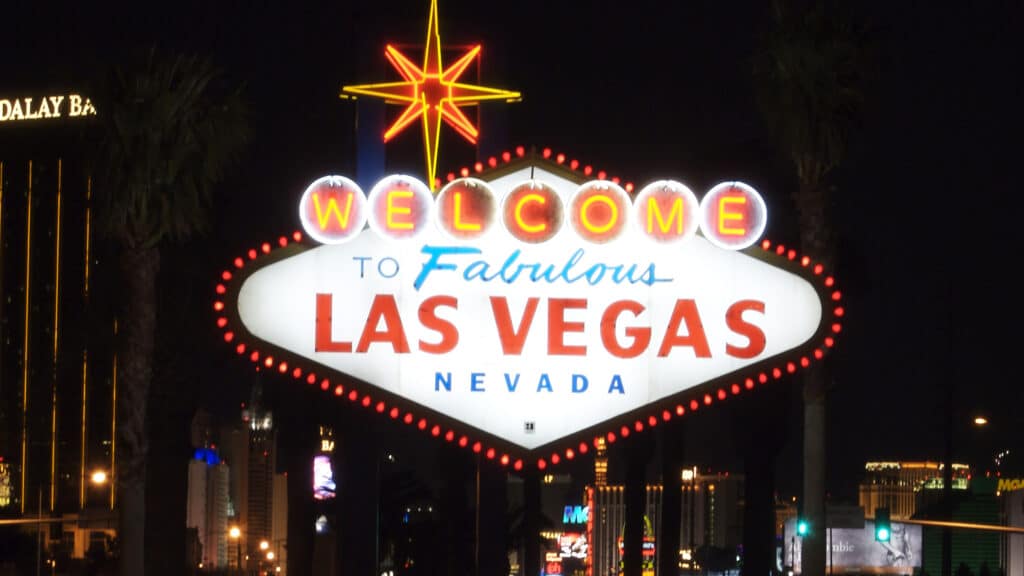Las Vegas, often referred to as the "Gambling Capital of the World," is synonymous with casinos, neon lights, and high-stakes entertainment. This iconic city has been at the heart of the global gambling industry for decades, and its rise to fame is a story full of excitement, innovation, and historical milestones. In this article, we will take a deep dive into the history of gambling in Las Vegas, uncover fun facts, and provide valuable insights for both new and experienced casino players.
The History of Gambling in Las Vegas
The story of Las Vegas and its transformation into a gambling mecca is a tale of vision, entrepreneurship, and change. Gambling in the area dates back centuries, but it wasn’t until the early 20th century that the city’s gambling scene really began to take shape. Let’s explore the key milestones in the evolution of gambling in Las Vegas:
The Birth of Las Vegas: 1900s to 1931
Las Vegas was officially founded in 1905, but its early years were not defined by casinos or gambling. The area was initially a railroad town, and the population consisted mostly of settlers, miners, and railroad workers. However, Las Vegas was already known as a place for some illicit gambling, with underground games taking place in private homes and backrooms of saloons.
The real turning point came in 1931 when Nevada legalized casino-style gambling. This move was crucial for Las Vegas’ development as a gambling hub, as it allowed casinos to legally operate in the state. This was a strategic decision made by the state government to boost the economy during the Great Depression. With the passing of the Nevada Gaming Control Act, the groundwork for Las Vegas' future was laid, and the first legal casinos began to open in the city.
The Golden Age: 1940s to 1960s
By the 1940s, Las Vegas was rapidly gaining a reputation as a place where tourists could find the thrill of legal gambling. The city became synonymous with entertainment, attracting a wide range of visitors who sought both gaming and shows. The emergence of iconic casinos such as the El Rancho Vegas (1941) and the Flamingo (1946) marked the beginning of Las Vegas' golden age of casinos.
However, it was the opening of the Flamingo Hotel and Casino by gangster Bugsy Siegel in 1946 that truly put Las Vegas on the map. The Flamingo was one of the first resorts to offer a combination of casino gaming, luxurious accommodations, and world-class entertainment. This concept of integrating various aspects of tourism would become the blueprint for the modern Las Vegas experience.
During this time, mobsters from across the country played a significant role in financing many of the major casinos. The criminal element in Las Vegas was so pervasive that it became a part of the city's mystique, giving it an edgy allure that continues to this day. The 1950s and 1960s saw a boom in both the casino industry and the entertainment sector, with stars like Frank Sinatra, Dean Martin, and Sammy Davis Jr. performing in the city’s swanky hotels and casinos.
The Rise of the Mega-Resorts: 1970s to 1990s
The 1970s to 1990s marked a turning point in Las Vegas' growth. The city saw the rise of massive casino resorts that revolutionized the way people thought about gambling and leisure. In 1973, the International Hotel (later known as the Las Vegas Hilton) opened, becoming the largest hotel in the world at the time. This was followed by the opening of the MGM Grand in 1978, which was another game-changer for the city.
The 1980s and 1990s were defined by extravagant mega-resorts, such as The Mirage (1989), the first of its kind to combine a luxury hotel, a casino, and world-class entertainment in one complex. The Mirage was followed by properties like Treasure Island, the Bellagio, and the Venetian, each setting a new standard for luxury and innovation in the hospitality and casino industries. Las Vegas was no longer just a place to gamble; it was becoming a global tourist destination.
The Modern Era: 2000s to Present
As we entered the 21st century, Las Vegas continued to expand and evolve. The opening of new resorts, such as the Wynn Las Vegas (2005) and the Cosmopolitan of Las Vegas (2010), solidified the city’s reputation as an entertainment hub. In addition, the city has made efforts to diversify its offerings by incorporating shopping, dining, and family-friendly attractions alongside its casinos and nightlife.
The introduction of online gambling platforms and mobile gaming apps in recent years has also expanded the reach of Las Vegas' gaming experience. Online casinos, sportsbooks, and poker rooms have allowed players from around the world to experience the excitement of Las Vegas without leaving home. However, the iconic Strip remains the epicenter of the city’s gambling industry, attracting millions of visitors every year.
The Gambling Scene in Las Vegas Today
Las Vegas is now home to more than 30 large-scale casinos, with many of the world’s most famous hotel and casino resorts located on the iconic Las Vegas Strip. The city continues to be the leading destination for gamblers, offering everything from penny slots to high-stakes poker rooms.
The Major Casinos in Las Vegas
When it comes to the world’s most famous casinos, Las Vegas is at the forefront. Below are a few of the largest and most well-known casinos in the city:
- The Bellagio: Known for its stunning fountains and luxurious ambiance, The Bellagio is a top choice for high-rollers and casual gamblers alike. The casino offers a wide range of games, including blackjack, baccarat, poker, and slots.
- The Venetian: Inspired by the canals of Venice, The Venetian offers a blend of Italian elegance and modern casino gaming. With over 2,000 slot machines and numerous table games, The Venetian provides a world-class gambling experience.
- Caesars Palace: One of the most iconic resorts in Las Vegas, Caesars Palace is famous for its Roman-themed architecture and extensive gaming options. The casino is home to an impressive poker room and has hosted numerous world-class poker tournaments, including the World Series of Poker.
- MGM Grand: One of the largest casinos in the world, the MGM Grand boasts over 170,000 square feet of gaming space. The casino features a wide range of slots, table games, and a world-class sportsbook.
- Wynn Las Vegas: Known for its luxurious design and impeccable service, Wynn Las Vegas is one of the most exclusive casinos on the Strip. The casino is famous for its high-limit slots and its beautiful poker room.
The Most Popular Games in Las Vegas
Las Vegas offers an incredible variety of casino games, with something for every type of gambler. Here are some of the most popular games you’ll find in the city’s casinos:
- Baccarat: As the king of casino games in Las Vegas, baccarat attracts both high-rollers and casual players. The game’s simple rules and low house edge make it a favorite among many players. High-stakes baccarat tables can be found in the VIP sections of several casinos.
- Slot Machines: With thousands of slot machines spread across the city’s casinos, slots are a favorite pastime for many Las Vegas visitors. From penny slots to high-limit machines, the variety is endless.
- Blackjack: Blackjack remains a staple in Las Vegas casinos. The game’s mix of strategy and luck makes it appealing to both beginners and advanced players. The city offers numerous variations of blackjack, including single-deck, double-deck, and shoe games.
- Poker: Las Vegas is home to some of the best poker rooms in the world. Whether you're looking for cash games or tournament play, the city has something for everyone. The World Series of Poker (WSOP), held annually at the Rio Hotel and Casino, is the premier poker event in the world.
Fun Facts About Gambling in Las Vegas
Las Vegas has a long and fascinating history when it comes to gambling. Here are some fun facts that add to the allure of the city:
- The City Never Sleeps: Las Vegas is known for its 24/7 lifestyle, with casinos operating round the clock. In fact, the city has more hotel rooms than any other destination in the world, with over 150,000 rooms available to tourists.
- Highest Gambling Revenue: Las Vegas generates more gambling revenue than any other U.S. city. In 2021 alone, Las Vegas casinos earned nearly $8 billion in gaming revenue.
- The Big Jackpot: The largest ever jackpot payout in Las Vegas was over $39 million, won on a Megabucks slot machine at the Excalibur Hotel and Casino in 2003.
- Game of Chance: Slot machines were the first legal form of gambling in Nevada. They are still the most popular form of casino game, accounting for more than 70% of the state's gambling revenue.
Conclusion
Las Vegas is a city like no other, offering the world’s best casinos, thrilling games, and endless entertainment. Its history of gambling is rich, full of fascinating stories, and has shaped it into the entertainment capital it is today. Whether you are a beginner or a seasoned pro, Las Vegas continues to be the ultimate destination for anyone looking to experience the excitement and thrill of the casino world.



